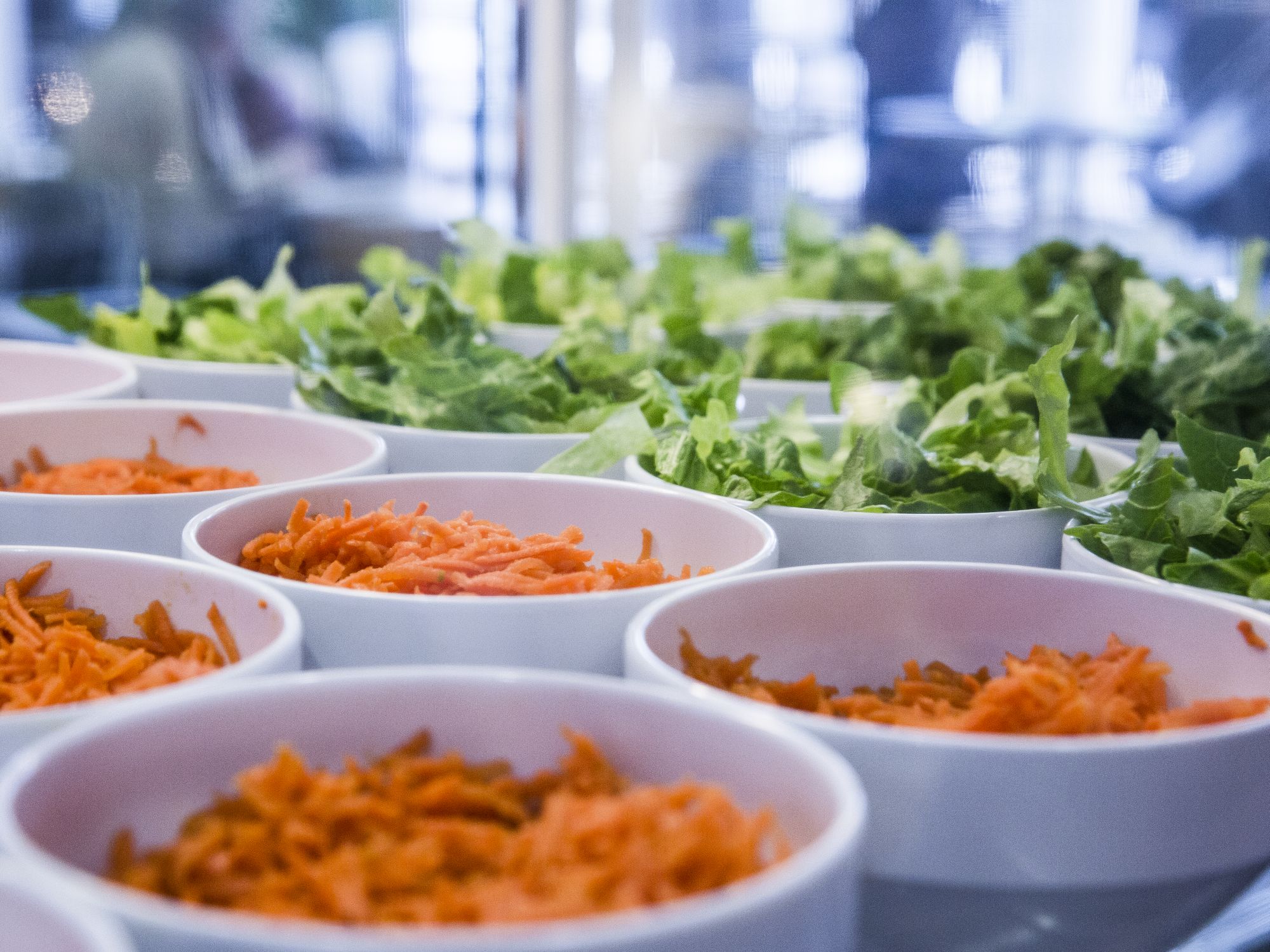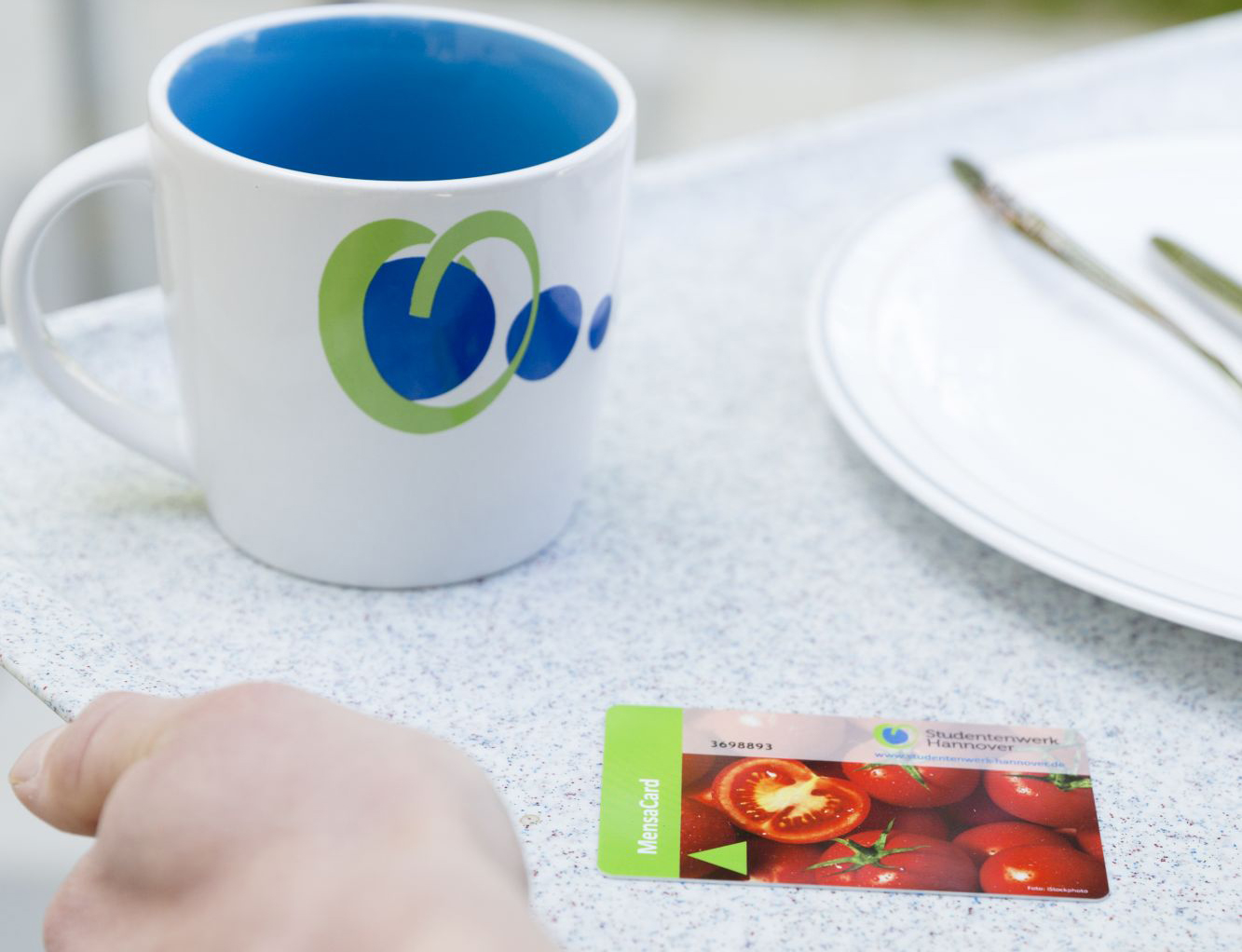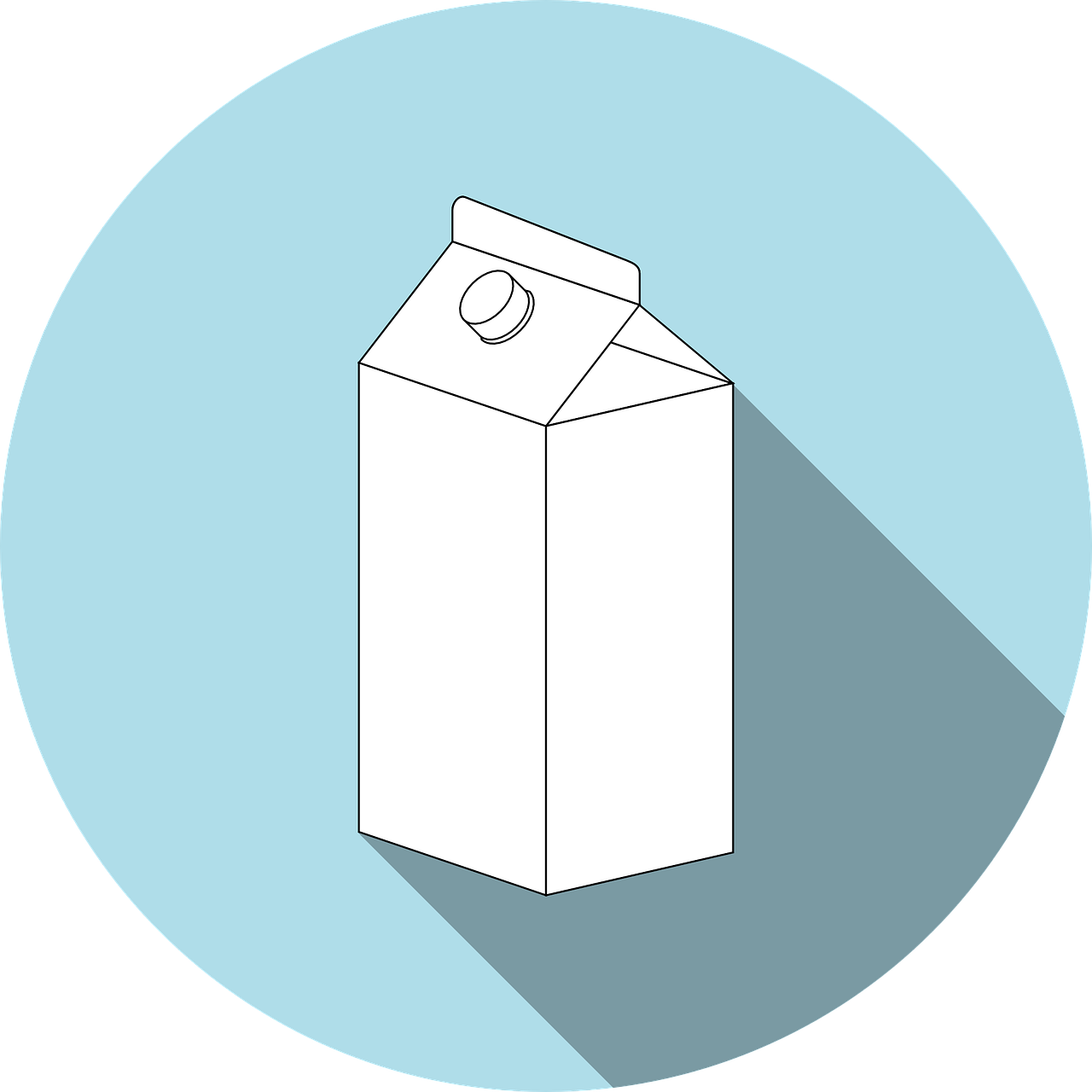
We source our products from large suppliers as well as smaller producers from Hanover. In our cafeterias and dining halls, for example, we offer baked goods from a baker in Hanover and sell dairy products from Hemme (Wedemark). We also work with a local butcher, from whom we obtain our pork schnitzels for Schnitzel Day, among other things.
When discussing the menus we also try to consider the seasonality of ingredients, so in a certain period we have more dishes with ingredients that are in season, such as asparagus, strawberries or wild garlic. As we need large quantities, it is not always possible to buy all ingredients regionally and seasonally, which means that we also have to resort to frozen goods and food from other countries.
Food quality plays a major role for us. We pay particular attention to ensuring that the products are free of additives. Allergens also play an important role. If possible, we also try to avoid as many allergens as possible.
New suppliers are visited in advance by our ecotrophologists to ensure that the production and processing meet our quality standards.
- Use of regional and seasonal foods
- Increasing the range of animal-free products
- Reduction of disposable items such as coffee cups and take-away boxes through reusable alternatives such as our new to-go boxes and KeepCups/test run Hannoccino
- Recycling of food waste, oils and fats by specialist companies
- Waste avoidance through the use of bulk containers
- Modern and up-to-date kitchen technology
In almost all canteens there are dish return belts with precise instructions (Where to put the leftovers? What about the napkins? No stacking of dishes etc.) on how to place the dirty dishes on the tray. Our staff in the dishwashing kitchens have a fast pace of work where every move has to be spot on to avoid stopping the dish return conveyors and therefore queues at the return. It is therefore important to follow the instructions exactly in order to avoid a stop of the dish return conveyor.
Tray boxes in the dining halls with dish return belts are only for emergencies where the dish belt is not working. Snaking does not constitute an emergency.
In many canteens it is possible to study before lunchtime. Due to the limited space available and the high dining demand, it is not possible to study during lunch or dinner distribution. Most dining halls close after lunch. Some dining halls, such as the Camus Linden dining hall, can be separated from our serving area by a roll-up door and serve as a study area for students.
Attention. Changes due to the Corona pandemic:
Please observe the currently valid regulations of the Corona Ordinance regarding gatherings and registration obligations.
Depending on the size of our facilities, they are inspected once or twice a year by the Hanover Food Inspection Authority. Furthermore, in cooperation with an external company, unannounced samples of surfaces in the refectories and cafeterias are taken to determine the hygiene status after cleaning work.
Before closing times, all facilities are thoroughly cleaned and these cleanings are also checked by our ecotrophologists.
Our menu is a central menu, which means that the same meal is offered in all canteens on the same day. The central menu is decided centrally at our main dining hall by the head of our production kitchen, an ecotrophologist and, in regular rotation, a cafeteria manager. This is necessary because a large part of the meals are pre-produced in our central kitchen. Different meal offers in the canteens would exceed the production capacities of our production kitchen.
To avoid having to start from scratch, we work with a year-round menu in which some dishes are repeated according to season and popularity.
We make sure that our menu is as varied as possible and offers healthy alternatives for everyone. In addition to a vegetarian dish, we also offer a vegan dish every day. Other criteria are seasonality, allergens, as well as guest requests. Ultimately, the dishes must also be cookable in every cafeteria and implementable using the available equipment.
The processing and sale of food in communal catering is subject to strict regulations. Among other things, hot food must have a minimum temperature of 65°C throughout and may not be kept hot for longer than 3 hours. For this reason, we do not reuse or continue to use hot and open dishes that have already been served.
At the Studentenwerk Hannover we work according to the Cook and Chill method. Some meals are pre-produced in the main dining hall, cooled down, delivered to our dining halls in Hannover and finished on site. The time decoupling of production and completion for serving has the advantage that food in the refectories can be provided in small quantities, still rich in nutrients and in a short time for our guests. If there is less demand on a particular day, some of the pre-produced goods can remain in our cold stores or be frozen and used later.
This type of production results in less waste. Food that has been disposed of is collected by a food waste disposal company, which recycles it further, e.g. for biogas plants.
We also work together with foodsharing at some locations.
Chip cards with payment function for the canteens and cafeterias, which you receive from the university at the beginning of your studies and which also serve as student ID, semester ticket, library card, etc., are available at Leibniz University, Hannover University of Applied Sciences and Arts and the University of Veterinary Medicine. At the University of Music, Drama and Media there is a chip card, but you cannot use it to pay in the canteens and cafeterias!
Students pack
- student ID or I-certificate,
- photo ID (ID card, passport, driver's license),
- € 5 deposit and
- money to upgrade
and go to the MensaCard-counter in the foyer of the Hauptmensa (Mondays to Fridays from 12:00 to 14:00).
Cards entitling the holder to the lower student prices will only be issued upon presentation of the student ID in conjunction with a document with a photo (ID card, passport, driver's license, etc.).
A €5 deposit is required for the card, which will be refunded when the card is returned.
The newly acquired MensaCard does not yet have any credit. Before it can be used for payment, the card must be upgraded. The revaluation with cash only takes place at the cash revaluators in the refectories. This means that you pay an amount of 5 to 70 €, which is credited to your card. You can top up your card at the machines with notes worth €5, €10, €20 and €50.
In some refectories there are also special machines where you can top up your card with your EC card.
MensaCards are generally valid as long as the student ID presented, i.e. after six months at the latest, the student status must be proven again. The renewal can be done at any cash desk by presenting the student or staff ID and photo ID. It is therefore advisable to have these documents with you! Upon exmatriculation or leaving the university, simply return the card and you will receive the deposit amount back.
Send us an email at mensen@studentenwerk-hannover.de or call us at (05 11) 76-88 969. Of course, the staff in the dining halls and cafeterias are also available for information.
At the checkout, place the card on the reader. On the display you will see your credit, the amount to be debited and the remaining credit. Please leave the card on the reader until the booking process is complete! Otherwise reading errors may occur. To avoid queues, please make sure that there is always enough credit on the card! You can check your credit and increase it if necessary at any time at the ticket machines.
We label the following substances or products that trigger allergies or intolerances in accordance with the valid Food Information Regulation:
20A Wheat
20B Rye
20C Barley
20D Oats
20E Spelt
20F Kamut
21 Crustaceans and crustacean products
22 Eggs and egg products
23 Fish and fish products
24 Peanuts and peanut products
25 Soya and soya products
26 Milk and milk products
27J Almonds
27K Hazelnuts
27L Walnuts
27M Cashew nuts
27N Pecans
27O Brazil nuts
27P Pistachios
27Q Macadamia nuts
28 Celery and celery products
29 Mustard and mustard products
30 Sesame seeds and sesame seed products
31 Sulphur dioxide and sulphites > 10 mg/kg
32 Lupine and lupine products
33 Molluscs and mollusc products
The information about the ingredients is based on information that we receive from the manufacturers and suppliers. Due to the variety of products from the manufacturers, it is possible that mixes occur and that traces of unlisted ingredients are also contained in the products. Despite the greatest care, the operation of a commercial kitchen means that cross-contamination can occur. We can therefore not completely exclude the possibility that the dishes offered do not contain other ingredients in addition to those labelled.
All products that reach the canteens or cafeterias via the purchasing and goods receiving departments must be properly declared by the manufacturer. This declaration is stored in our internal merchandise management system and enables a correct declaration of the individual ingredients, on the basis of which recipes are created. The recipes are strictly adhered to during food production.
Furthermore, the entire kitchen staff is trained to prevent the occurrence of cross-contamination through compliance with hygiene regulations and a targeted organization in the kitchen operation.



